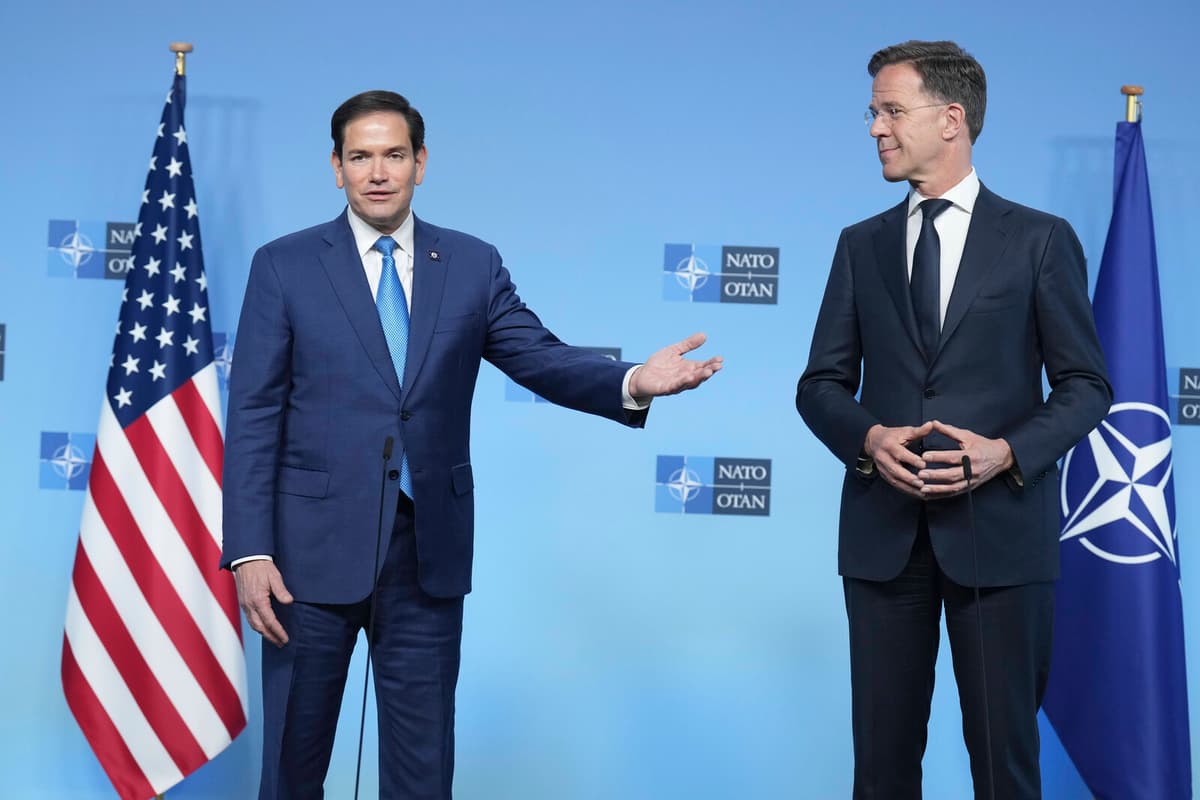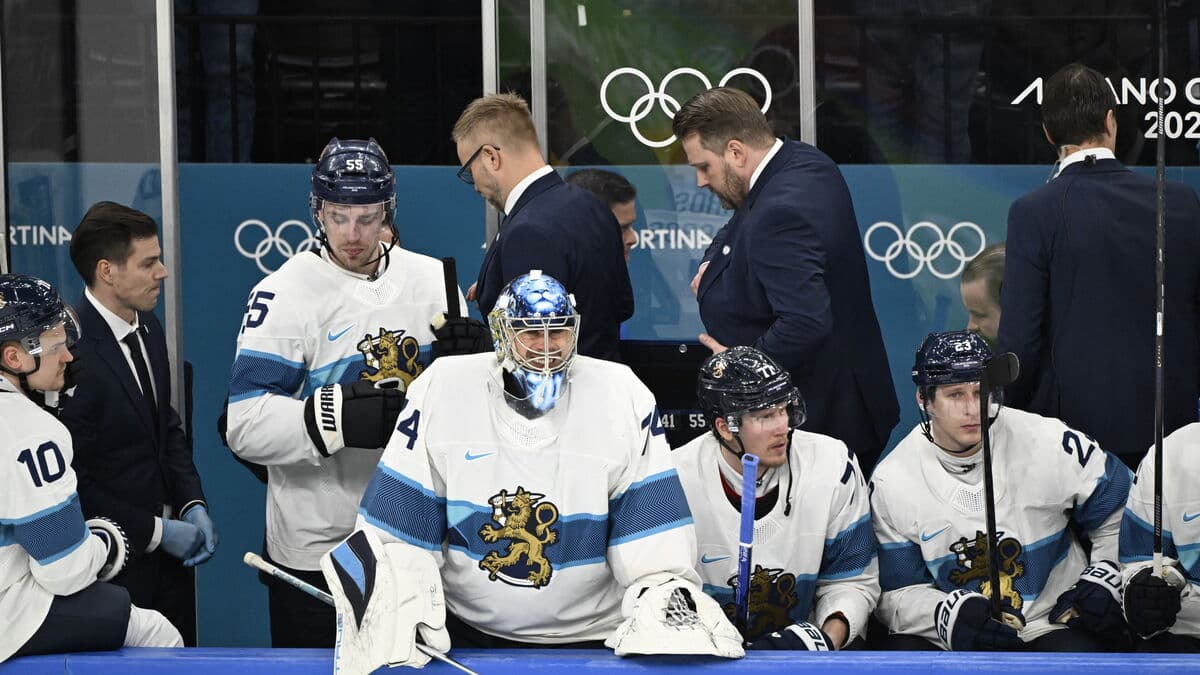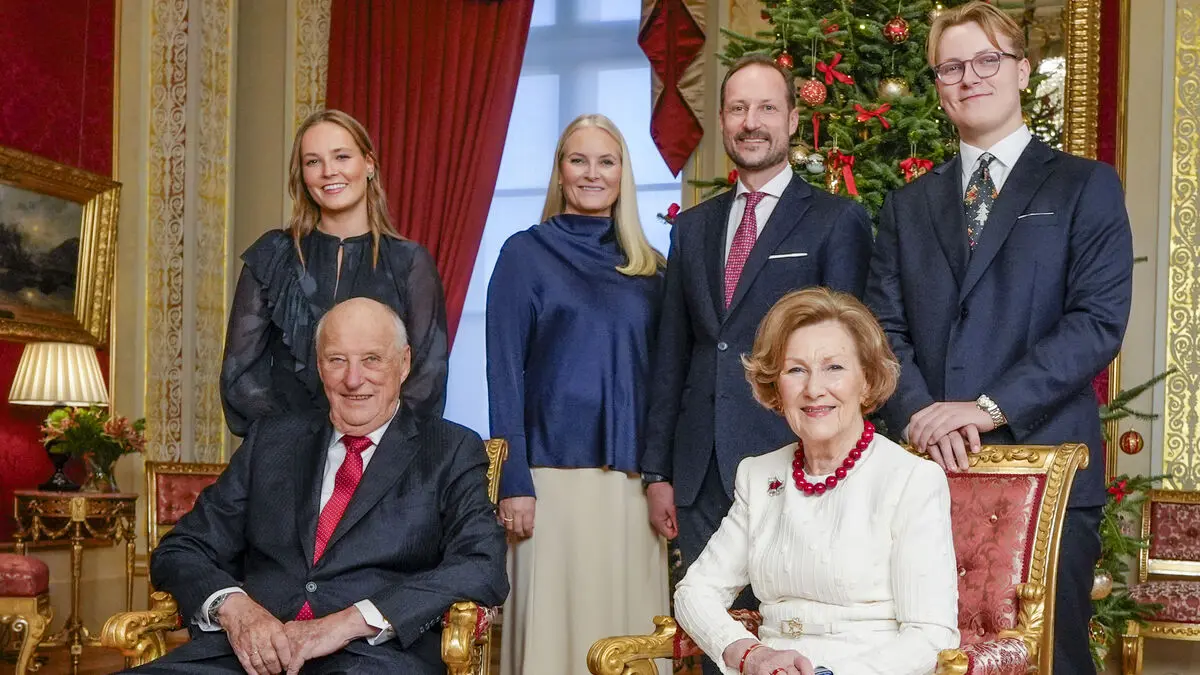The fresh US minister is making his first Nato meeting in Brussels this week, at a time when relations across the Atlantic are creaking more than they have in a long time.
Besides the trade war and the criticism directed at Europe and the EU from, among others, Vice President JD Vance and Defense Minister Pete Hegseth, there are also reports that the US is planning to move large troop forces from Europe and even let a European take over as the highest military Nato commander on the continent.
"Hysteria"
Rubio counters, however, by dismissing the concern as "hysteria".
The US is staying in Nato. The US is as active in Nato as we have ever been. A lot of this hysteria that I see in global media and some in the US is completely unfounded, says the foreign minister side by side with Nato's Secretary-General Mark Rutte.
Advertisement
But he also emphasizes that it still applies to all Nato countries to increase their defense spending a good deal above the current goal of allocating at least two percent of their GDP.
We want Nato to become stronger. And the only way to become stronger is if our partners have greater capacity. This is a gathering of advanced economies, rich countries, that can do more, states Rubio.
New percentage target
Nato will present a new target for how much each country should invest at its top meeting in The Hague in June.
Both Rubio and Donald Trump continue to talk about five percent – even though it's a figure that not even the US is close to right now.
The events of recent years, with a full-scale war in the heart of Europe, are a reminder that hard power is still needed as a deterrent, says the foreign minister.
We want to ensure that we are on a realistic path towards all member countries fulfilling the promise of allocating up to five percent, and that applies to the US as well, says Rubio in Brussels.
"Significantly more"
What Sweden is willing to consider, Foreign Minister Maria Malmer Stenergard (M) does not want to go into publicly.
Sweden is prepared to do our part. We have doubled our defense spending over four years and we are prepared to do significantly more. But we have not landed on a figure yet, she says on her way into the meeting in Brussels.
Advertisement






